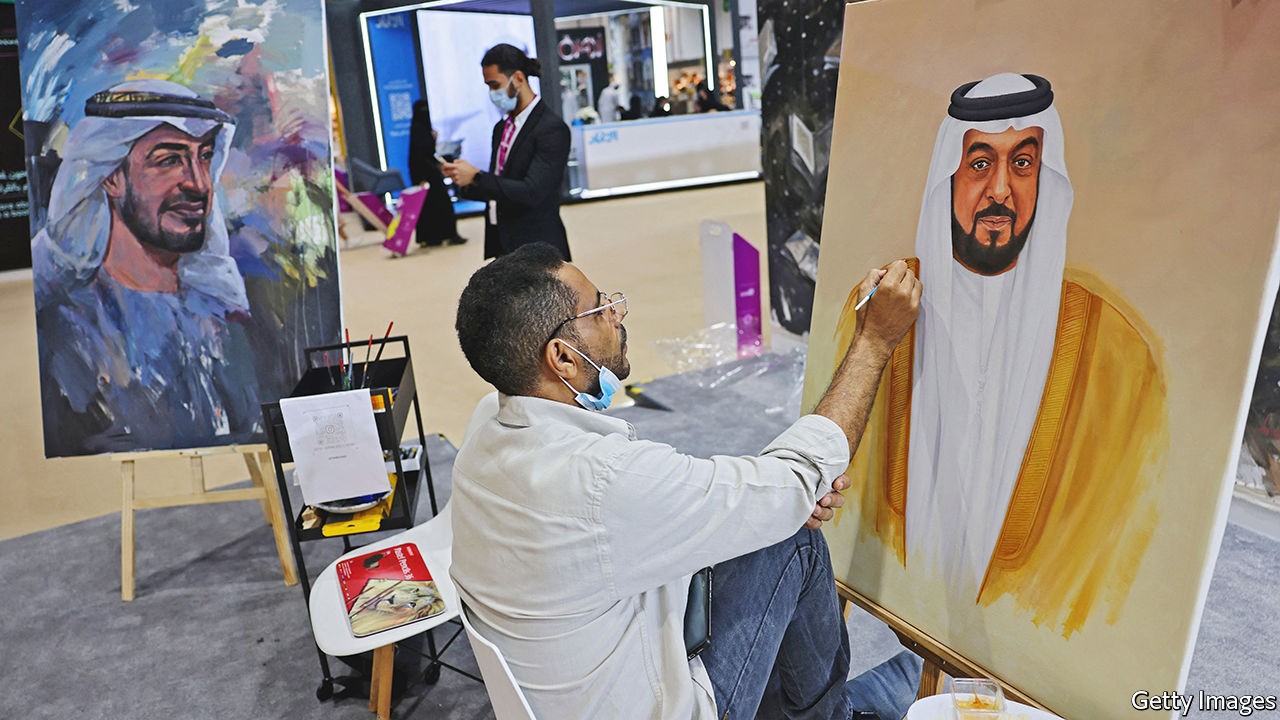
T ransitions do not get much easier. On May 13th the United Arab Emirates ( uae ) announced the death of its president, Khalifa bin Zayed Al Nahyan. Though he had held the job since 2004, a stroke in 2014 pushed him largely out of the public eye. Running the country fell to his half-brother, Muhammad bin Zayed, the crown prince of Abu Dhabi, one of the seven emirates that make up the uae and the one that provides its capital. On paper Muhammad was outranked by the ruler of Dubai, who is also the uae ’s prime minister. In practice he was already the most powerful man in the country.
Listen to this story. Enjoy more audio and podcasts on iOS or Android Your browser does not support the
His de facto rule is now official. One day after Khalifa’s death, the rulers of the seven emirates unanimously chose him as president. There will be no radical change in policy: the new boss is the same as the old.
Still, his ascent is not without its intrigues. First will be his choice of crown prince. The uae ’s constitution sets a procedure for picking the president. Within each emirate, however, matters of succession are left to ruling families. They are of special import in Abu Dhabi, which has supplied all three of the country’s presidents: today’s heir-apparent will probably be tomorrow’s head of state.
The new man’s father, Zayed bin Sultan Al Nahyan, who ruled from independence in 1971 until his death in 2004, had 18 acknowledged sons by seven wives. He meant them to share power. The most influential are the six born to Fatima, his third and favourite wife. Muhammad is the eldest of that bunch; if he follows tradition, he will make a brother his heir. The front-runner is Tahnoun, the powerful national-security chief, who also oversees a vast business empire.
Though he has taken a more public role of late, he is still a quintessential man in the shadows. Yet he is a far more likely choice than Mansour, the former chairman of a sovereign-wealth fund tarnished by its association with a multi-billion dollar scandal to do with a Malaysian state-investment firm; he also bought Manchester City, a top football club. Another brother, Abdullah, has served as foreign minister since 2006, a big job but not the best practice for running the uae ’s domestic affairs.
Many diplomats believe Muhammad ultimately wants his eldest son, Khaled, to replace him; he has been grooming him for years. But he need not rush. At 61, Muhammad can expect to rule for a while. Naming a brother would let his son grow into the role, perhaps as deputy; the line of succession can always be changed.
There is no deadline. Whatever Muhammad decides, there is unlikely to be much public drama. A century ago several members of the Nahyan clan killed their brothers to seize power. Abu Dhabi went through four rulers in the 1920s. The family’s matriarchs are said to have asked their sons to swear off such strife. Today the Nahyans are seen as one of the peninsula’s more disciplined royal families, their disputes settled in private—a far cry from next door’s fractious House of Saud.
The decision will one day affect everyone in the uae . The constitution does not require that the president hail from Abu Dhabi: in theory the ruler of tiny Ajman could run the country. No one expects that to happen, but in the federation’s early days some Emiratis thought the job might rotate between the Nahyans and the Maktoums of Dubai.
That notion may be dated. Flashy Dubai is better known outside the Arab world, but Abu Dhabi has the power. Though Dubai has the largest chunk of the emirates’ 10m people, Abu Dhabi has almost all its oil and gas reserves and 87% of its land.
The other emirates worry not that Abu Dhabi holds the power, but how it uses it. For decades each sheikhdom had a lot of freedom to set policy. Dubai built strong economic ties with Iran. Saqr al-Qasimi, a previous ruler of Ras al-Khaimah, the northernmost emirate, refused to ban the local branch of the Muslim Brotherhood. Neither view was liked in Abu Dhabi, but the other emirates’ rulers, particularly in Dubai, zealously guarded their autonomy.
That was eroded in 2009, when Dubai, battered by the financial crisis, needed a bail-out of $10bn from the capital. The money bought a very public concession: the world’s tallest building, meant to be known as the Burj Dubai, was renamed the Burj Khalifa, in honour of the president. Much the same happened in private, as the balance of power between the two largest emirates tipped towards Abu Dhabi.
Muhammad has since exerted greater control over foreign policy and security. The Nahyans have also built up their businesses, from banks to energy to entertainment. His views—hawkish, suspicious of mass politics, hostile to political Islam and Iran—set the tone. Questioning them is out of the question. Emiratis say the space for public discussion of government policy, let alone dissent, has shrunk markedly over the past decade.







